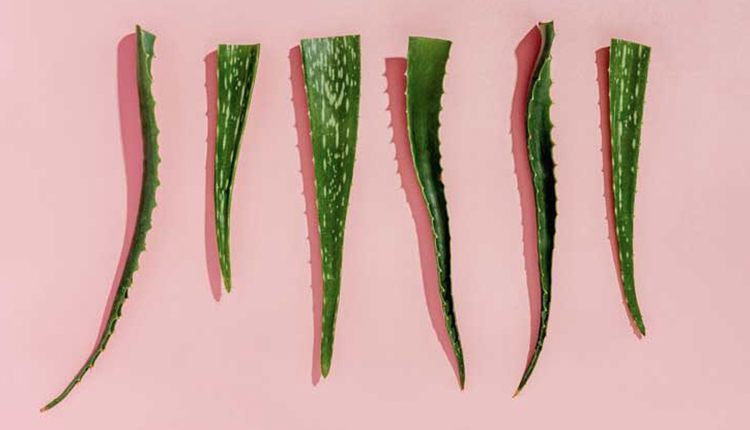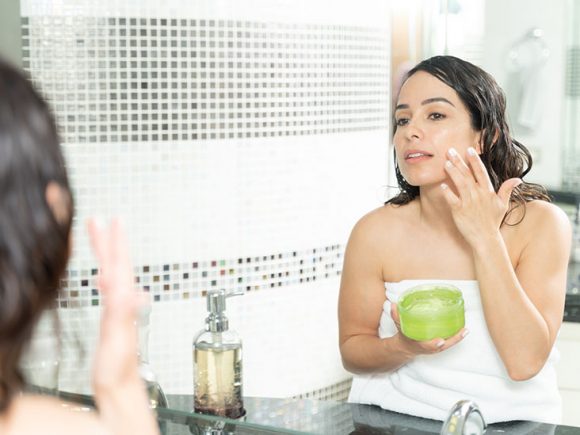
Aloe vera gel is one of the most popular remedies for many skin conditions. But you should know that this ingredient isn’t friendly for everyone’s skin.

Its popularity is because of its protective and hydrating properties. Other properties include treating sunburns, dry skin, frostbite, fire burn, skin irritation. But everything has a good side and a wrong side, and so does aloe vera gel.
Here are seven skin conditions when you shouldn’t use aloe vera gel.
If you have severe cystic acne:
Aloe vera gel is neither a cure nor a treatment for cystic acne. In addition, overuse of aloe vera gel can worsen inflammation.
If you have extra sensitive skin:
Sensitive skin can quickly get irritated with aloe vera, and one can experience other skin issues due to the irritation.
If you do not use sunscreen:
Aloe vera gel is known to increase skin sensitivity in many people. So, if you use aloe vera and do not use any sunscreen, you might end up with hyperpigmentation and sun damage.
If you have known allergies to aloe vera:
If you experience hives or rashes post aloe vera gel application, you absolutely cannot use gel ever again.
If you have infected wounds on the skin:
While it has some microbial properties, aloe vera gel can disrupt the healing process and worsen the infection.
If you have inflammatory skin disorder:
Good quality aloe vera gel can relieve mild skin conditions, but if you have severe inflammatory skin lesions, please go to a physician’s firsts.
If you use retinol regularly:
Retinols can thin the skin and can make the skin sensitive. So, a lousy quality aloe vera gel on top of this will lead to redness and inflammation.

